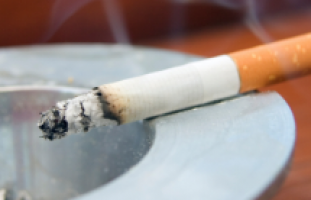
About 53% of lung cancers in females are not attributable to smoking worldwide and a new model presented at the IASLC World Conference on Lung Cancer may allow clinicians the ability to assess and stratify lung cancer risk in female non-smokers in China.
Lanwei Guo, Henan Cancer Hospital, China examined data from 151,834 patients in Henan province, China, from October 2013 to October 2019 from the Cancer Screening Program in Urban China (CanSPUC).
The aim was to develop and validate a simple and non-invasive model which could assess and stratify lung cancer risk in female non-smokers in China.
Patients were randomly divided into the training (75,917) and validation (75,917) sets. Elder age, history of chronic respiratory disease, first-degree family history of lung cancer, menopause, and history of benign breast disease were the independent risk factors for lung cancer.
Using these five variables, Dr. Guo and colleagues platted one-year, three-year, and five-year lung cancer risk prediction nomograms. The area under the curve was 0.762, 0.718, and 0.703 for the one-, three- and five-year lung cancer risk in the training set, respectively. In the validation set, the model showed a good predictive discrimination, with the area under the curve was 0.646, 0.658, and 0.650 for the one-, three- and five-year lung cancer risk.
Related risk factors were identified through multivariable Cox regression analysis, followed by the establishment of a risk prediction nomogram. Discrimination [area under the curve (AUC)] and calibration were further performed to assess the validation of risk prediction nomogram in the training set, and then validated by the validation set.
“We developed and validated a simple and non-invasive lung cancer risk model in female non-smokers that can be applied to identify and triage patients at high risk for developing lung cancer in female non-smokers,” Dr. Guo reported.
Source: IASLC
We are an independent charity and are not backed by a large company or society. We raise every penny ourselves to improve the standards of cancer care through education. You can help us continue our work to address inequalities in cancer care by making a donation.
Any donation, however small, contributes directly towards the costs of creating and sharing free oncology education.
Together we can get better outcomes for patients by tackling global inequalities in access to the results of cancer research.
Thank you for your support.